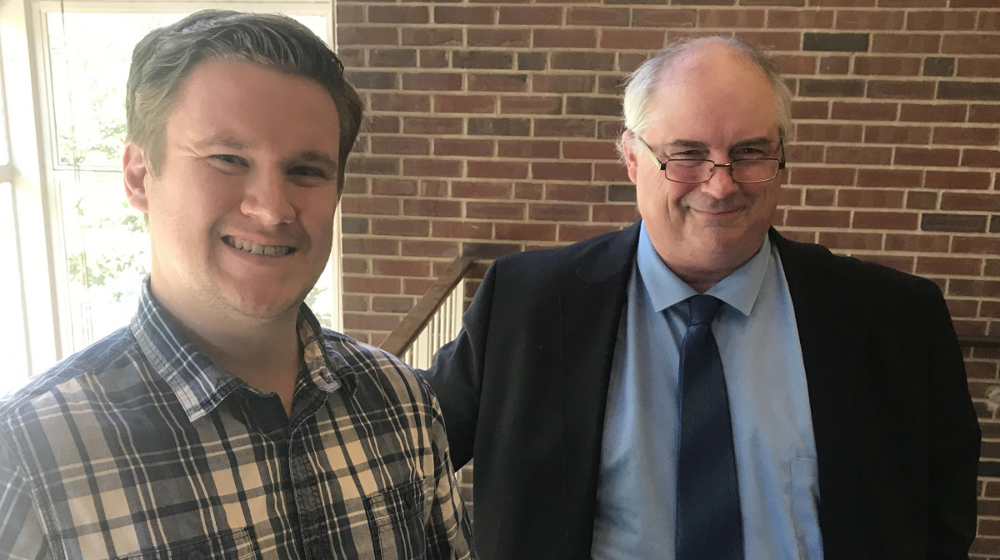
Bennett Morris and Christopher Howick, chair and vice chair of the McLean County affiliate of the Libertarian Party of Illinois.
Ballot laws are usually designed to keep most political choices unavailable to the voting public. In a recent NPR affiliate interview at Illinois State University, the chair and vice chair of the McLean County affiliate of the Libertarian Party of Illinois, Bennett Morris and Christopher Howick, explained the injustice of the restrictive ballot access laws in Illinois:
When you’re running for elected office, you need to get people to sign your nominating petitions to get on the ballot. It can be a slog, with every waking moment pestering shoppers leaving grocery stores or asking your neighbors for their John Hancock.
For Christopher Howick of Bloomington, it’s even worse. Howick is running for the Illinois House in 2018, the seat currently held by state Rep. Keith Sommer, R-Morton. But because Howick is a Libertarian—not a legally established party statewide—he must collect a minimum of 2,500 signatures to get on the ballot, five times as many as Sommer and Democratic challenger Jill Blair.
It’s hypocritical for Democrats to complain about electoral fairness—you may have heard Trump didn’t win the popular vote—or Republicans to worry about voter fraud, Howick said.
“To me what is the biggest fraud and the biggest unfairness is that we have to jump through hoops, obstacles, all over the place, simply to give people an extra choice on the ballot,” Howick said.
The issue of ballot access has new urgency in McLean County, as local Libertarians try to make some noise and inroads against the two-party system. Libertarians mounted a run—unsuccessfully—last spring in the surprisingly contested Normal Township race. And now local Libertarians like Howick are making runs for McLean County Board and the Illinois House.
Read the full article and listen to the interview at the WGLT website.

